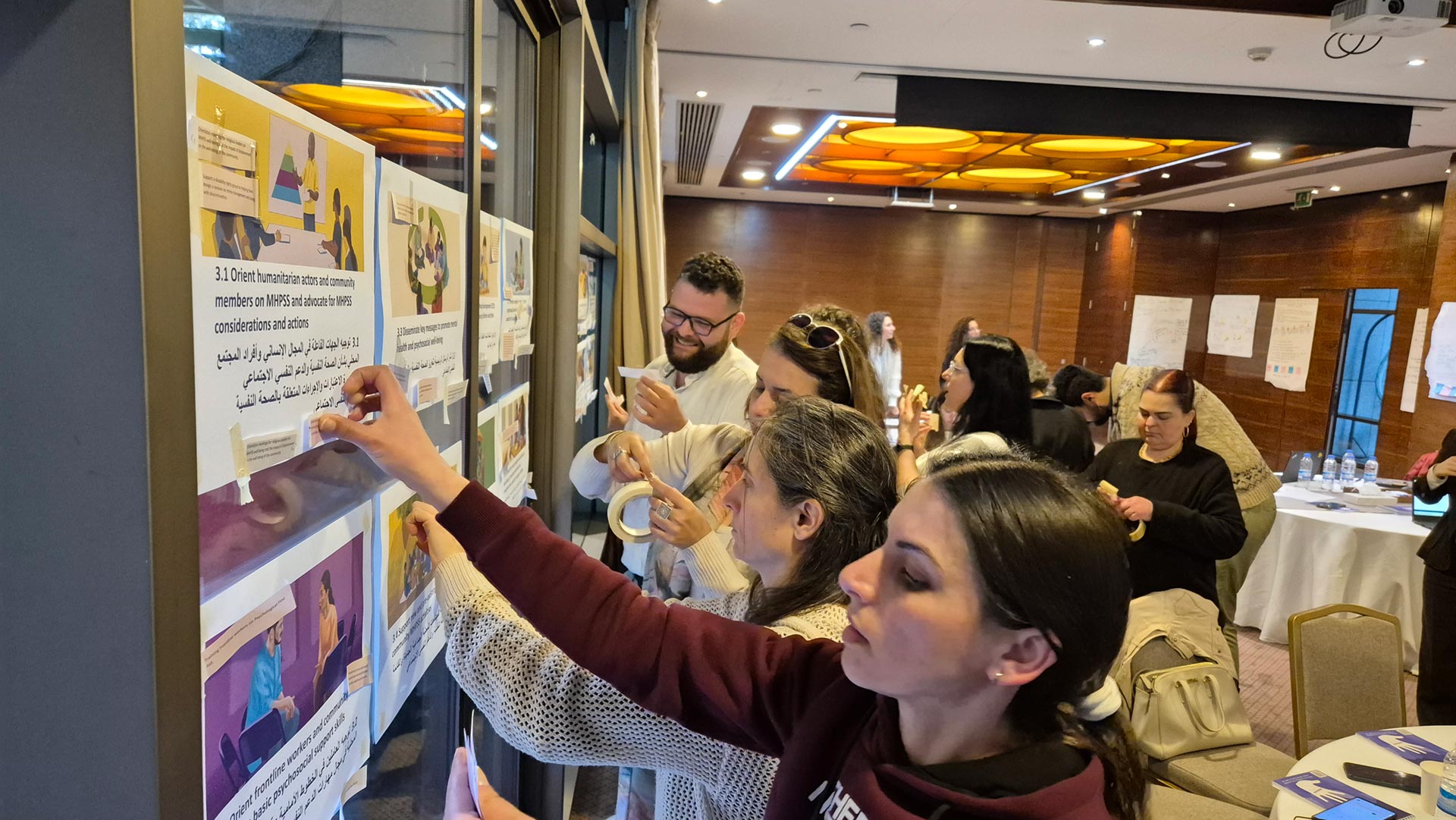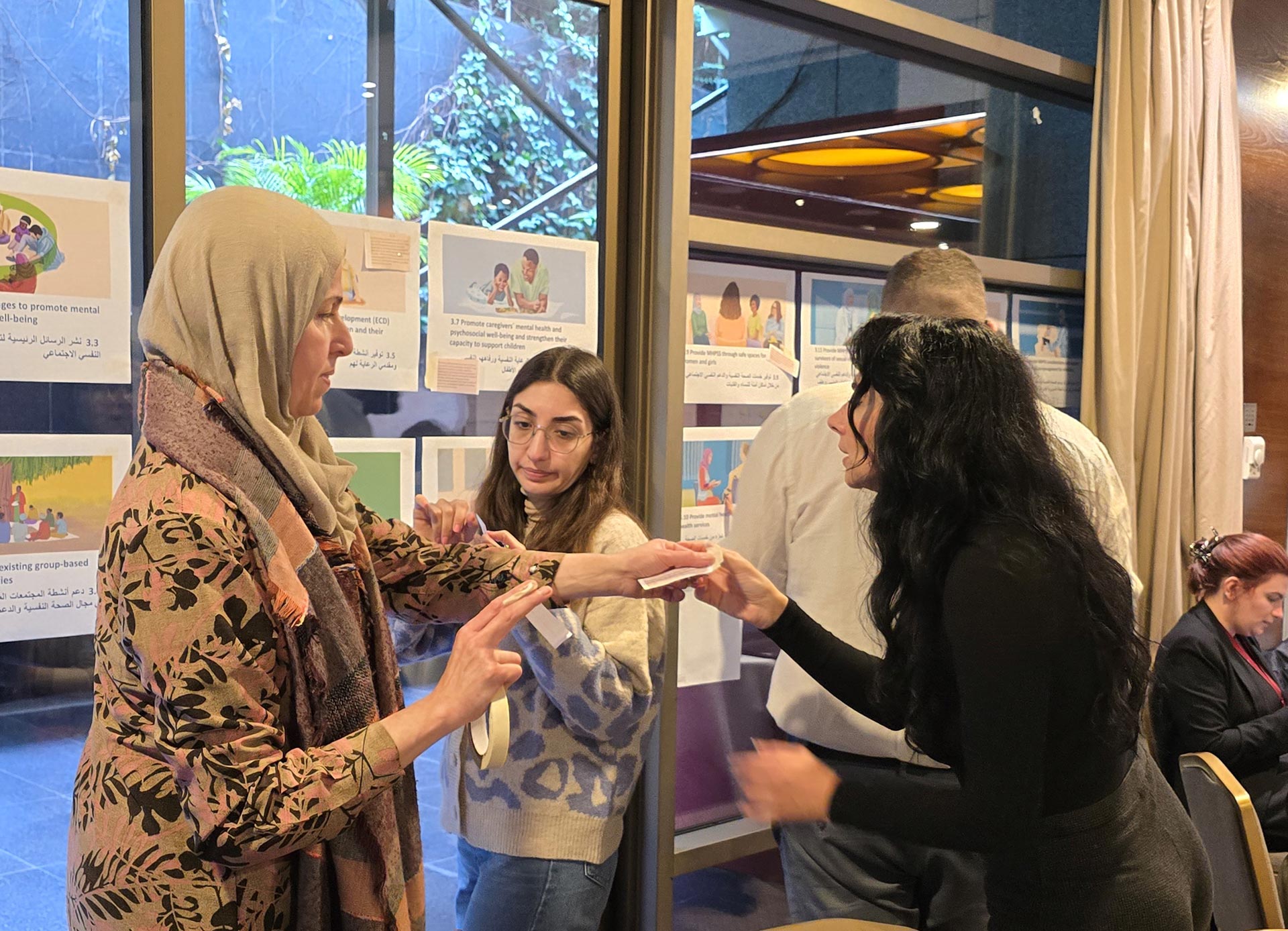 25 September 2025 – Overlapping crises, compounded by the escalation of hostilities in 2023 and the onset of war in 2024, have pushed Lebanon’s health care system to its limits. To address the growing psychosocial needs of patients and the emotional toll on health care workers, a series of training workshops on mental health and psychosocial support (MHPSS) has been undertaken in the country’s hospitals.
25 September 2025 – Overlapping crises, compounded by the escalation of hostilities in 2023 and the onset of war in 2024, have pushed Lebanon’s health care system to its limits. To address the growing psychosocial needs of patients and the emotional toll on health care workers, a series of training workshops on mental health and psychosocial support (MHPSS) has been undertaken in the country’s hospitals.
The initiative was carried out by the World Health Organization (WHO), in collaboration with the Ministry of Public Health’s National Mental Health Programme and Public Health Emergency Operations Centre, as part of Lebanon’s emergency preparedness and response planning. It aimed to strengthen the mental health and psychosocial response capacity of frontline staff in public and private hospitals across Lebanon, prioritizing nurses, physicians in emergency rooms and rehabilitation professionals.
Targeting priority needs
 The training was designed in consultation with hospital managers. Aligned with Ministry of Public Health accreditation standards and based on an assessment of needs, it built on mental health training provided prior to the 2023/2024 emergency. The workshops focused on:
The training was designed in consultation with hospital managers. Aligned with Ministry of Public Health accreditation standards and based on an assessment of needs, it built on mental health training provided prior to the 2023/2024 emergency. The workshops focused on:
managing acute psychiatric cases, such as panic attacks or delirium, for physicians in facilities without in-house mental health services, in response to the growing need to assess and treat psychiatric emergencies without specialist support;
emotional crisis management (ECM) for nurses, equipping them with the skills to de-escalate emotional crises in hospital settings and with self-care techniques to help them cope with high levels of stress and demanding workplace conditions;
breaking bad news (BBN) for nurses, enabling them to communicate sensitive information with empathy, skills urgently needed following the escalation of war and its impact on patients and families; and
MHPSS training for rehabilitation professionals, to enhance their ability to meet the mental health and psychosocial needs of people with disabilities in a context of increased war-related disabilities, especially among young adults.
Advanced ECM training was delivered to selected nurses to become in-hospital trainers. This is particularly important given the shortage of psychiatric nurses in Lebanon’s hospitals.
Key achievements
 Over 1800 nurses trained in ECM across more than 110 hospitals.
Over 1800 nurses trained in ECM across more than 110 hospitals.
Over 1900 nurses trained in BBN across 115 hospitals.
160 physicians trained in managing psychiatric emergencies across 58 hospitals.
Around 200 rehabilitation professionals trained in MHPSS for people with disabilities.
81 nurses provided with advanced ECM training across 56 hospitals.
Despite challenges such as nurse fatigue, low physician engagement and documentation gaps, high satisfaction rates. Pre- and post-tests for the advanced ECM training demonstrated significant knowledge gains.
Trainers and hospitals both reported that the skills acquired were immediately applied in practice. One nurse trainee reported that the BBN training had changed her approach while supporting her father through an amputation. Another participant noted how ECM techniques had helped them manage daily patient and family crises more effectively.
Hospitals have requested that ECM training be expanded to other frontline personnel such as security staff.
Looking ahead
The advanced ECM course represents a first step towards institutionalizing the training within hospitals and plans are being initiated to incorporate ECM into annual nurse training programmes.
The initiative highlighted the need to ensure the well-being of frontline staff working in health care, especially during emergencies and post-emergency situations, and demonstrated how, in a context such as Lebanon’s, emergency preparedness and response interventions can support the integration of mental health within health care, reducing stigma and helping to ensure that psychosocial support is seen as an essential, rather than optional, component of care.
Key messages
WHO, in collaboration with the Ministry of Public Health’s National Mental Health Programme and Public Health Emergency Operations Centre, has trained over 2500 health care workers from Lebanon’s public and private hospitals, equipping nurses, physicians and rehabilitation professionals with core skills to respond to mental health and psychosocial needs.
The training responded to critical needs identified by hospital staff and national stakeholders, including increasing numbers of psychiatric emergencies requiring emotional crisis management, breaking bad news skills and support for persons with disabilities.
Collaborative ownership of the initiative by WHO, the Ministry of Public Health and the private and public hospital sector contributed to the success and sustainability of the initiative.
Emergencies can create opportunities to integrate mental health and psychosocial support into the health system. Strengthening the capacity of frontline staff is now a cornerstone of Lebanon’s emergency preparedness and response activities.








